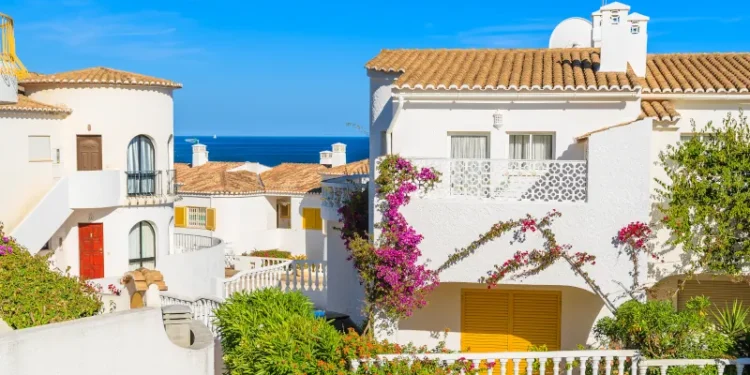Negotiating a real estate deal in another country—both the purchase and the sale—is likely to be different for you than any experience you have with real estate in your home country.
In the United States, you typically fill out a purchase agreement with your offer price, contingencies, and any other details and sign.
Your offer overseas won’t be as formal… at least to start.
You may just tell your agent the price you want to offer, and he will call the owner or the other agent. Once you agree on the price, you might then list out your contingencies if you have any.
Whereas in the States you generally expect a counteroffer if the seller doesn’t accept your price outright, in Latin America you might just hear back from your agent that the seller just declined your offer.
That’s not unusual, especially in a seller’s market. The seller expects you to then come back with a higher offer even though they’ve given no indication they are willing to settle at a price lower than the list price. In fact, don’t be surprised if the seller comes back with a price higher than the list price. It’s happened to me on several occasions, and not just in Latin America.
Recently I was reminded of a property in Ireland I was interested in buying two decades ago when we first moved there.
When I sat down with the owner to talk more about the property and what renovations he had done already, along with my plans for developing the property, he started increasing the price. That was after I had already made an initial offer below his original asking price.
We kept the conversations friendly and I continued to build the relationship with him as I did my due diligence on the property, but each time we spoke about price, he increased it.
After three price increases, I just walked away.
That property never actually sold. The owner died some 21 years after I last spoke with him. He still owned the house. His heirs chose to sell.
I spoke to the real estate agent who had the listing and told her my story about him increasing the price as we “negotiated” all those years ago. She said others who had looked at the property back then told her similar stories.
In this case, the problem was most likely his emotional attachment to the property and as a result of that experience, I walk away from any property immediately if the seller increases the “asking” price after I’ve made an offer.
Start Your New Life Today, Overseas
It’s either an indication that they really don’t want to sell, or that they think because you’re a foreigner you’ll pay more because you have more and really want the property.
However, what do you do if the seller just says “no” to your offer?
That depends on how much you really want the property.
You could make a second, higher offer… which is what the seller is expecting. If the market isn’t a seller’s market, you could not respond at all and let the owner stew a bit. You could also just reply with the same amount and say that’s your final offer.
Much depends on how badly you want the property, but when looking at investment property, you always need to be ready to walk away. Take the emotion out of the deal.
You could also respond by making a lower offer. It’s not the typical negotiating response, and the one time I’ve tried to use this approach, the real estate agent actually refused to even take the lower offer to the seller stating that it would “harm” his reputation, as people would think he’s not a serious agent.
My response to the agent was that we weren’t going to make a deal, as the seller simply refused my offer.
I know one person who did make a deal by making a lower, second offer when the seller only came down a small amount from their asking price after the first offer.
The buyer got the property for the lower offer because the seller really wanted to sell.
You should prepare yourself in advance for the various types of responses you might get when trying to negotiate a purchase of a property. The “no” answer isn’t uncommon, so think in advance of how you want to respond.
When you go to sell, if you have a local buyer making an offer, you might see the opposite side of the offer spectrum where they don’t make an offer but ask what’s your best price. It’s their way of getting you to put a lower number out there first… after which they then use that as the “asking” price to make their offer.
My response to that is this: If they’re really interested, they should make a formal offer that the seller can respond to. Otherwise, they should go away.
Of course, as a seller you’ll always wonder if you should have listed a property for more if you sell it quickly for the asking price. However, if you’re happy with the sales price, take those thoughts out of your head.
On the buying side, if you’re buying for pure investment and the numbers work at the asking price, i.e. the net yields are 5% or higher, then you can be comfortable that you paid a reasonable price.
Every market is going to be different… even the same actual market will change between when you buy and when you sell. Every property in every market will be different. If a property is priced for the market, it will sell quickly at the asking price.
In a buyer’s market, you may never be able to negotiate a reasonable price for a property if the seller is emotionally attached to it or if they are facing a capital loss when they sell.
Take the market conditions into account for how to approach your negotiations while also considering the local customs on negotiating.
Stay diversified,

Lief Simon
Editorial Director, Global Property Advisor
P.S. I’ve put together a three-day event—the only event of its kind in 2025—that brings property developers and experts from around the world together in one place at the same time…
My 2025 International Property Summit will take place in Panama City, Panama, from June 18-20. My team of gathered experts will help you to decide what to buy… where to buy… and how to get started. We’ll show you the ropes, so you’re not cheated… or disappointed… and we’ll give you the inside track on over a dozen exclusive and vetted property deals.
Find out more and book your seat at the 2025 International Property Summit here. Take action today to lock in a $300 discount.










